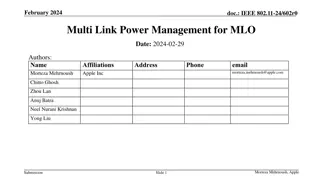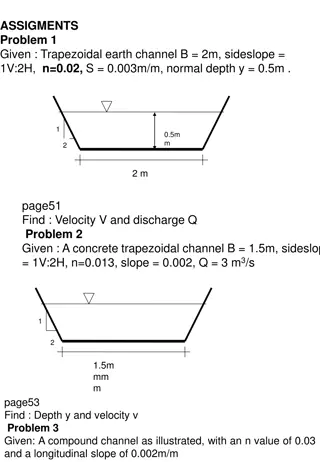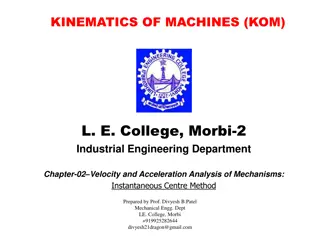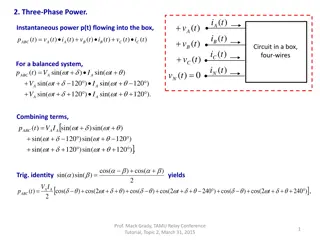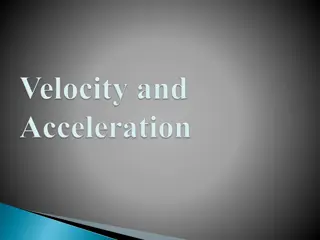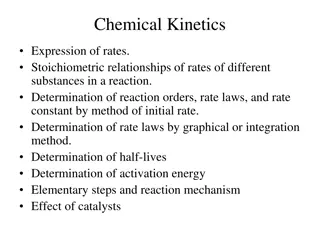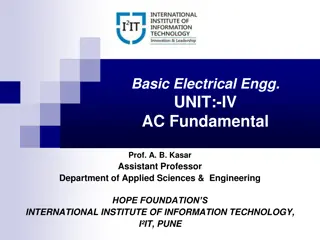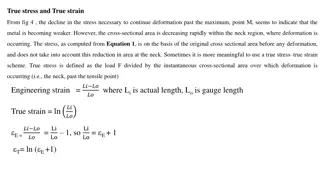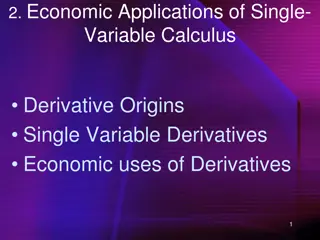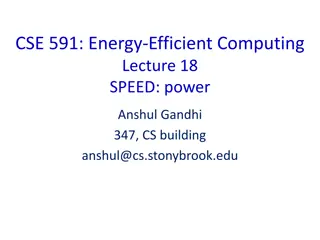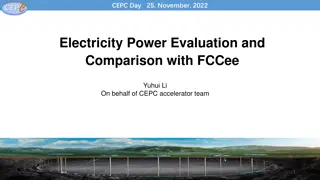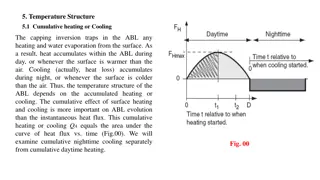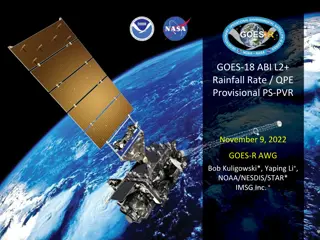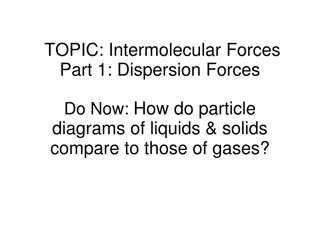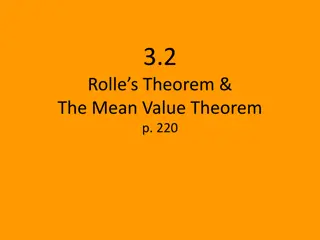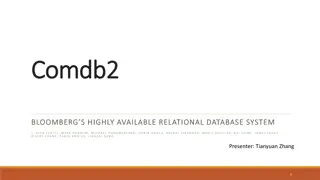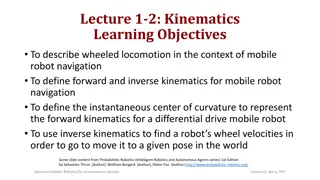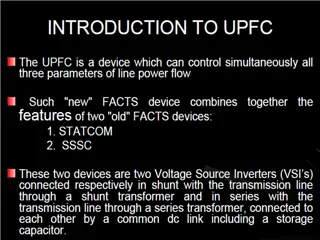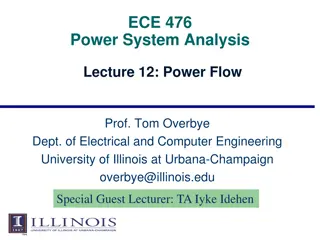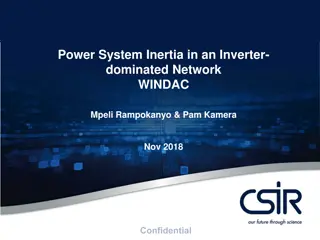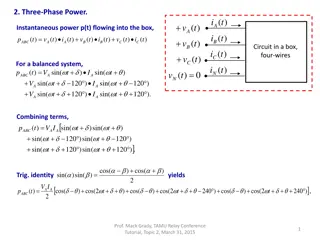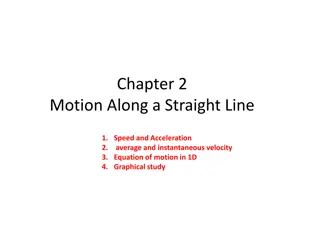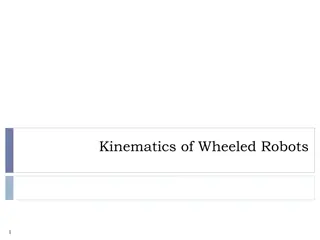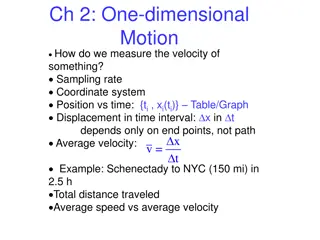Cisco Systems Fault Managed Power Portfolio Overview
Cisco Systems offers an industry-leading Fault Managed Power (FMP) patent portfolio comprising 24 active assets across seven INPADOC families. The portfolio includes patents supporting fault-managed power systems, PoE deployments, DC power distribution, DC-DC conversion, and HVDC connectors. The FMP
4 views • 4 slides
Improving Multi-Link Power Management Efficiency in IEEE 802.11 Networks
The document discusses challenges with per-link power mode changes in multi-link scenarios in IEEE 802.11 networks, proposing a solution for more efficient power management. It addresses issues such as latency and inefficiencies in signaling for power mode changes, introducing scheduled multi-link p
6 views • 9 slides
Understanding Power Transfer and Impedance Matching in Circuits
Exploring the concept of maximizing power transfer between a source and load through impedance matching. Learn about complex conjugates, real and magnitude of complex numbers, average power in circuits, and the importance of minimizing reflected power. Discover how incident, reflected, and delivered
3 views • 33 slides
Understanding Water Hammer Phenomenon in Fluid Systems
Water hammer is a significant issue caused by sudden changes in fluid velocity, commonly encountered in hydraulic systems when valves are closed rapidly. This phenomenon, also known as hydraulic shock, can have serious consequences if not managed properly. The content discusses the time of pressure
3 views • 5 slides
Kinematics of Machines: Instantaneous Center Method for Velocity and Acceleration Analysis
Explore the method of locating instantaneous centers in mechanisms to analyze velocity and acceleration. The content covers examples of pin-jointed four-bar mechanisms and slider-crank mechanisms, providing dimensions and angular velocities calculations. Prof. Divyesh B. Patel from L.E. College, Mor
0 views • 13 slides
Overview of Farm Power Sources and Utilization in Agriculture
Farm power sources in agriculture include human, animal, mechanical, and renewable energy. Human power is costly but versatile, while animal power is traditional and provides manure. Mechanical power from tractors and engines is efficient. India's farm power sources reflect a mix of traditional and
0 views • 12 slides
Understanding Three-Phase Power Systems and Instantaneous Power Flow
This detailed content delves into three-phase power systems, analyzing instantaneous power flow, balanced circuits, and trigonometric calculations. It explores the concept of constant three-phase power and provides insights into the analogy of a piston engine with infinite cylinders. The data includ
2 views • 9 slides
Understanding Velocity: The Key to Motion
Velocity is the speed and direction at which an object moves, indicating both its position and rapidity. It is crucial for measuring the rate of change of an object's position over time and differentiates from speed as a vector quantity. This comprehensive guide delves into the concepts of velocity,
2 views • 33 slides
Understanding Motion: Concepts and Definitions in Physics
Motion in physics is defined as the change in position of an object over time. It involves concepts like rest, motion, distance, displacement, rate of motion, and types of motion. Rest and motion are relative to a reference point, while distance and displacement differ in their scalar and vector nat
2 views • 25 slides
Understanding Chemical Kinetics: Rates, Reactions, and Mechanisms
Chemical kinetics involves studying reaction rates, rate laws, stoichiometry, and factors affecting reaction speed. This branch of chemistry delves into determining reaction orders, rate constants, and activation energies using various methods. Different types of rates, such as initial, instantaneou
2 views • 68 slides
Understanding AC Fundamentals in Basic Electrical Engineering
Exploring key concepts in AC fundamentals, including definitions of alternating quantities, important terms like amplitude, time period, instantaneous value, frequency, and angular frequency. The presentation covers AC circuits with resistance, inductance, and capacitance, providing insights into RM
0 views • 25 slides
Understanding Power Quality and Its Impact on Electrical Systems
Power quality refers to the characteristics of electrical power that drives sensitive equipment. It involves voltage and current deviations from ideal waveforms, impacting the efficiency and reliability of electrical systems. Various types of power quality phenomena exist, such as voltage variations
1 views • 16 slides
Understanding True Stress and Strain in Materials
In materials engineering, the use of true stress and true strain provides a more accurate representation of material behavior, especially in regions undergoing deformation like necking. True stress considers the instantaneous cross-sectional area, accounting for changes in the material's strength du
0 views • 15 slides
MC-OOK Symbol Design for IEEE 802.11 - March 2018
Introducing MC-OOK waveforms with low peak-to-average power ratio for IEEE 802.11, utilizing 256-QAM modulation and 4 MHz bandwidth. The design methodology involves generating time-domain waveforms, transforming to frequency domain, and proposing symbols with and without DC subcarriers. Detailed sym
0 views • 20 slides
Signal Extraction from Instantaneous Lacquer Discs - Overview and Procedures
Delve into the world of lacquer discs with a comprehensive guide on signal extraction, format characteristics, preservation techniques, and stylus selection. Explore the Emelie Hooke lacquer disc collection and learn about the transfer workflow, cleaning, and preparation steps involved in handling t
4 views • 23 slides
Principles of Game Feel: Enhancing Player Experience through Design Elements
Explore the seven principles of game feel for enhancing player experience, including predictable results, instantaneous response, easy but deep gameplay, novelty, appealing response, organic motion, and harmony. Learn how these principles influence game design and player engagement, emphasizing fact
0 views • 12 slides
SMOS Pilot Mission Exploitation Platform (Pi-MEP) Overview
The presentation highlights the tools and capabilities of the SMOS Pilot-Mission Exploitation Platform (Pi-MEP) for providing instantaneous answers to data-related questions, showcasing three ICT infrastructures, and outlining FELYX/NAIAD, Datavore, Datalaps, Merginator, Syntool, and Jupyter noteboo
0 views • 21 slides
Economic Applications of Single-Variable Calculus Derivatives in Economics
In economics, derivatives play a crucial role in analyzing various economic phenomena such as marginal amounts, maximization, minimization, graphing, elasticity, and growth. This involves understanding derivatives of single-variable functions, slopes, instantaneous slopes, and the applications of de
0 views • 75 slides
Exploring Power Efficiency in Computing Systems
In this lecture series on energy-efficient computing, various concepts related to dynamic frequency scaling, power capping, power shifting, power modeling, and power measurement are discussed. The impact of power on server speed is explored, alongside strategies for improving performance within powe
0 views • 17 slides
Comparison of Electricity Power Systems Between CEPC and FCCee
The evaluation and comparison of electricity power systems between the CEPC and FCCee accelerators reveal the power breakdowns, RF power consumption, magnet power supply, and overall power usage. Differences in power consumption for various components such as RF, magnets, and vacuum systems are high
0 views • 19 slides
Understanding the Photoelectric Effect: Dr. Samir Kumar Giri's Research
The photoelectric effect, first observed by Heinrich Hertz in 1887, involves the ejection of electrons from a metal plate when light shines on it. Dr. Samir Kumar Giri from Kharagpur College delves into this phenomenon, exploring how the kinetic energy of photoelectrons depends on light frequency ra
0 views • 11 slides
Understanding Temperature Structure and Cumulative Heating/Cooling in Atmospheric Boundary Layer
The temperature structure in the atmospheric boundary layer (ABL) is influenced by cumulative heating or cooling effects from the surface. During the day, heat accumulates within the ABL, while cooling occurs at night. The cumulative heating or cooling is more crucial for ABL evolution than instanta
0 views • 12 slides
GOES-18 ABI Rainfall Rate/QPE Provisional Product Overview
The GOES-18 ABI Rainfall Rate/QPE Provisional product provides estimates of instantaneous rainfall rate using single-image data from five spectral bands. Separate equations for rain/no rain discrimination and rain rate retrieval were calibrated against microwave rain rates. The product offers a meas
0 views • 30 slides
WylasTiming - Wireless Semi-Automatic Timing System Overview
WylasTiming is a wireless semi-automatic timing system developed in Australia, utilizing off-the-shelf hardware and Android handsets. It provides accurate timing with automatic race starting and instantaneous data transmission. The timekeeper simply stops the clock at the end of the race, and data i
0 views • 15 slides
Understanding Intermolecular Forces and Dispersion Forces in Molecules
Particle diagrams of liquids, solids, and gases reflect distinct arrangements due to intermolecular forces. The existence of substances as gases, liquids, or solids at room temperature is attributed to the forces between molecules known as intermolecular forces (IMF), with dispersion forces being th
0 views • 30 slides
Understanding Rolle's Theorem and The Mean Value Theorem in Calculus
Rolle's Theorem states that for a continuous and differentiable function on a closed interval with equal function values at the endpoints, there exists at least one point where the derivative is zero. The Mean Value Theorem asserts that for a continuous and differentiable function on an interval, th
0 views • 5 slides
Highly Available Relational Database System - Key Components and Design Choices
A comprehensive overview of a highly available relational database system, focusing on scalability, concurrency control options, data replication, availability strategies, failure handling, and full transactional support. The content discusses essential elements such as optimistic concurrency contro
0 views • 21 slides
Understanding Mobile Robot Kinematics for Navigation
Exploring the kinematics of wheeled locomotion in mobile robots, this content covers forward and inverse kinematics, instantaneous center of curvature, and the use of kinematics for robot navigation. Highlighting the challenges of measuring robot position and the integration of wheel velocities for
0 views • 52 slides
Overview of Unified Power Flow Controller (UPFC) in Power Systems
A Unified Power Flow Controller (UPFC) is a combination of a Static Synchronous Compensator (STATCOM) and a Static Synchronous Series Compensator (SSSC) interconnected via a common DC link. UPFC allows bidirectional flow of real power and provides concurrent real and reactive series line compensatio
0 views • 20 slides
Understanding Speed and Velocity in Physics
Speed and velocity are fundamental concepts in physics. Speed is a scalar quantity that can be average or instantaneous, while velocity is a vector quantity that includes direction. Equations such as v=d/t help calculate these values. Average speed and average velocity are important in determining t
1 views • 10 slides
Understanding Leadership and Power Dynamics
Power and leadership are interconnected concepts, with power being the measure of a person's ability to influence others. Leaders have power in various situations, but it does not necessarily mean having power over people. Effective leaders balance their use of power with knowledge and trust, knowin
0 views • 9 slides
Power System Analysis: Lecture on Power Flow
Lecture 12 on Power Flow Analysis in Power Systems covers the use of power balance equations when analyzing complex power consumption and generation. It explains the derivation of real power balance equations for iterative solutions in power flow analysis. The lecture highlights the need for iterati
0 views • 30 slides
Understanding Power System Inertia in Inverter-Dominated Networks
This study explores the impact of high levels of instantaneous inverter-based renewable energy penetration on power system inertia. It delves into fundamental concepts of energy balance, frequency control, load/frequency characteristics, and the importance of system inertia in maintaining grid stabi
0 views • 20 slides
Understanding Motion, Speed, Velocity, and Acceleration
Motion is when an object changes its place or position. To describe motion accurately, consider the start and end position, movement relative to a reference point, distance traveled, and direction. Speed refers to the distance traveled per unit of time and can be calculated using the formula speed (
0 views • 25 slides
Understanding Three-Phase Power Systems
This content discusses three-phase power systems, including instantaneous power flow, balanced systems, and trigonometric identities. It delves into the concept of smooth running machines in relation to three-phase power, analyzing the constant nature of instantaneous power. The analogies to a pisto
0 views • 7 slides
Understanding the Porter Governor and Instantaneous Centre Method
The Porter Governor is a modification of the Watts Governor, involving a central load attached to the sleeve. The Instantaneous Centre Method analyzes the equilibrium of forces acting on the link BD by considering the instantaneous center I located at the intersection of PB produced and a line throu
0 views • 11 slides
Understanding Motion Along a Straight Line
Exploring the concepts of speed, acceleration, velocity, displacement, and distance in one-dimensional motion. Topics include average and instantaneous velocity, equation of motion, graphical analysis, position measurement, and the differences between distance and displacement. Dive into average spe
0 views • 47 slides
Understanding Kinematics of Wheeled Robots
Exploring the kinematics of wheeled robots, this content delves into the design and functionality of wheeled mobile robots, including the concept of ideal wheels, deviations from ideal conditions, and the importance of the Instantaneous Center of Curvature in enabling smooth rolling motion. It also
0 views • 37 slides
Glance US November - Best Phone Lock Screen
Dear citizens of the US, your smartphone's lock screen is no longer just a barrier between you and your device \u2013 it's a gateway to a world of instantaneous information. Enter the best phone lock screen solution that's transforming how Android us
0 views • 4 slides
Understanding One-Dimensional Motion and Velocity Measurements
Exploring the concept of velocity measurement in one-dimensional motion, this content delves into the sampling rate, coordinate systems, and the relationship between position and time. It discusses average velocity, instantaneous velocity, and the significance of slope on graphs representing motion.
0 views • 22 slides

